Cantatas Vol 8 (Gardiner, Monteverdi Choir)
Seria nagrań kantat J.S. Bacha pod batutą Johna Elliota Gardinera to prawdziwy skarb dla miłośników muzyki klasycznej. Gardiner, wraz z English Baroque Soloists, przemierzył Europę, wykonując te monumentalne dzieła w ramach projektu Bach Cantata Pilgrimage. Każdy album z tej serii to świadectwo głębokiego zrozumienia i pasji do muzyki Bacha. W ósmej części znajdują się kantaty na uroczystość św. Jana Chrzciciela oraz na I Niedzielę po Trójcy Świętej, które są pełne duchowej głębi i muzycznej wirtuozerii. Gardiner i jego zespół potrafią wydobyć z tych kompozycji ich barokową esencję, jednocześnie nadając im świeżość i nowoczesność interpretacji. To, co wyróżnia te wykonania, to nie tylko techniczna perfekcja, ale także zdolność do przekazywania emocjonalnego przesłania muzyki. Dzięki temu słuchacze mogą doświadczyć bogactwa i różnorodności kantat Bacha, które są równie aktualne dzisiaj, jak w czasach ich powstania. Albumy te są dostępne do zakupu i stanowią cenną część kolekcji każdego entuzjasty muzyki barokowej.
[amazon bestseller =”bach cantatas” items=”3″]

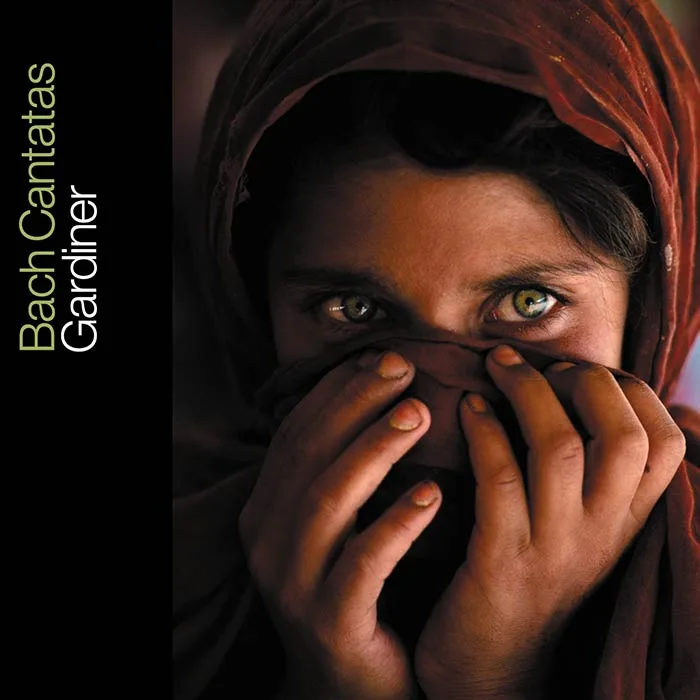


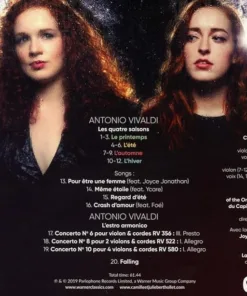
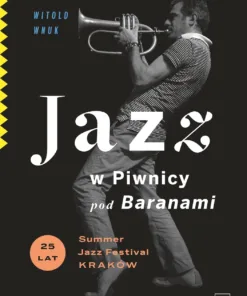
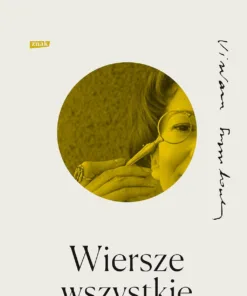
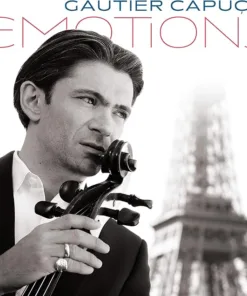
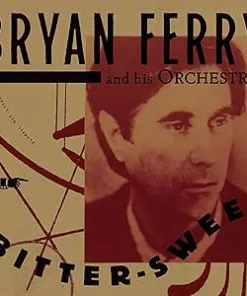

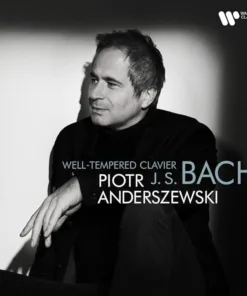
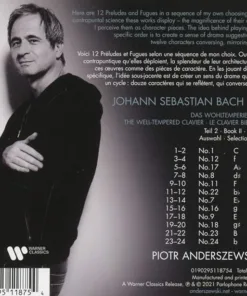

A musical feastThere are two excellent reasons to buy this CD – BWV99 and BWV8. If this doesn’t sound very convincing, it may help to mention that the wonderfully melodious and up-beat opening to Walton’s suite The Wise Virgins is based on the opening Choral of BWV99 (for 'based on’, read lifted from). What’s more, JSB himself was so taken by this one that he used it to open BWV100 (same text, trumpets and drums added, and included on CD1). No 99 in particular is full of delights, not just the first movement. Like the slinky chromaticism of the flute in the third number and the fifth number, for bass.With its lyrical charm, the opening to BWV8 is of transcendent beauty. For me, it provides perhaps the most gorgeous Bach cantata moments of all (all of those I’ve heard, anyway) surpassing even BWV82. It shows Bach as a superb melodist, not just an exemplary formalist and technician. Ideas – of consistently high quality – come thick and fast, as in the Brandenburg Concertos or the Magnificat, for instance. The only false notes seem to appear in the third number of BWV27 which, with musical quotations from Vivaldi’s Four Seasons and Bach’s own BWV147 cantata, sounds something like Baroque pastiche.This Pilgrimage recording of BWV8 is strikingly different from, say, Rifkin’s version (L’Oiseau-Lyre). Whereas Rifkin uses a solo quartet of voices for the opening movement, Gardiner opts for a choral approach. Both are deeply satisfying. Another reviewer has mentioned the 'wet’ sound quality of the recording, and wonders if another microphone, positioned closer, might have improved resolution. It is in BWV8 that this criticism seems most valid – the bass does seem rather distant and lacking definition. Overall, however, sound quality is fine, to my ears, at least. Moreover, the 'live’ performance isn’t compromised by coughs, lightning strikes, police sirens, or any of the other potential perils of going live.A very good friend of mine maintains that Bach didn’t know how to write dross. Not knowing all of Bach’s output, I’m not sure about this claim, but he’s on very safe ground in respect of the works on offer here: sublime, inventive, mellifluous, inspirational and, most certainly, dross-free.
Greatness in Recordings is Rare: Gardiners’ Pilgrimage Achieves ItIf one has to give an extra-special Christmas gift, I strongly recommend, as I have, at various times here, the complete set of Bach Cantatas recorded at performances throughout Europe, and ending at St. Bartholomew’s in New York (that odd faux-byzantine episcopalian contraption on Park Avenue two blocks up from my old office) each on its appropriate sunday, by John Eliot Gardiner, the Monteverdi Choir, Bach Soloists, and a batch of wonderful solo vocalists including Magdalena Kozena, Mark Padmore, James Gilchrist, Nathalie Stutzman, Robin Tyson, Katherine Fuge, Peter Harvey, etc. The Santiago disc in this volume has some of the most peaceful, indeed heavenly music, ever composed, here radiantly executed. The final album on the set was issued this year. Going through the whole set has been the most rewarding musical experience I have had in many a year. The wealth of inspiration and inventiveness Bach displays in this music is unmatched by any other composer (in my world Bach is god). Throughout my life I have dipped into the various collections of Bach cantatas beginning with the pioneering Harnoncourt/Leonhardt collection, Suzuki, Ton Koopman, Richter, Gonnenwein, but as individual performances and overall, I think John Eliot Gardiner captures the beauty, liveliness, gravitas, virtuosity, drama, and devotion in the music in ways others did not realize was present. The clarity with which these live performances have been captured is astonishing. This is no mere technical feet as it allows the listener to fully appreciate the full interplay between voice and instruments, at times how individual melodic lines are passed from a woodwind to a countertenor, for example, and how a solo violin decorates or provides descant to a vocal line. Beauty reigns. The recordings are issued in the Monteverdi Choir’s own label SDG(Soli Deo Gloria) in 27 volumes, most containing two cd’s, less than a handful, one. The whole set may be purchased as a unit or by individual units. There are years of transcendental music listening here. Do not be confused by the otherwise fine performances Gardiner recorded with DG/Arkiv….. you want those on SDG.
Bach VS GardinerLa cantata 27 excelente. Gardiner como siempre extraordinario.
良好です。無事に到着しております。良好です。
Kirchenmusik als Brücke in den HimmelDieses Album mit zwei Audio-CD’s ist die achte von insgesamt wohl 28 Folgen der Dokumentation einer (schon für sich genommen) sensationellen Leistung: im 250. Jahr nach Johann Sebastian Bachs Tod, also im Jahr 2000, hat der Monteverdi Choir mit den English Baroque Soloists alle erhaltenen Kirchenkantaten Bachs an den Tagen des Kirchenjahres aufgeführt, für die sie geschrieben wurden, und live aufgenommen, und zwar in Kirchen sowohl an Bachs Wirkungsstätten in Sachsen und Thüringen als auch quer durch Europa und bis nach New York. „Bach Cantata Pilgrimage” hieß das einzigartige Unternehmen. Folge 8 enthält Aufführungen der Kantaten für den 15. und 16. Sonntag nach Trinitatis, also Ende September und Anfang Oktober, in Bremen und in Santiago de Compostela.Man weiß bei diesen Aufnahmen nicht, wo man mit der Beschreibung seiner Bewunderung anfangen und aufhören soll. Schon die Logistik, Chor und Orchester, jeweils in zwei unterschiedlichen, penibel dokumentierten Besetzungen, nebst acht verschiedenen Solistinnen und Solisten und dem Aufnahmeteam in Zeitabständen von maximal einer Woche an die richtigen Orte zu bringen, lässt staunen. Die Beherrschung der Partituren klingt fast durchweg perfekt; Studioaufnahmen könnten kaum notengetreuer sein. Dabei verlangen die hier versammelten Kantaten von Ensembles wie von Solistinnen und Solisten (vokal und instrumental) gleichermaßen höchste Virtuosität. Nur ein Beispiel: Hier sind die drei schwierigsten Solopartien für Flöte versammelt, die Bach jemals geschrieben hat. Wirklich großartig ist aber das Zusammenwirken aller Beteiligten in der Vergegenwärtigung dieser sehr komplexen und spirituellen Musik, also: wie John Eliot Gardiner seine Musikerinnen zusammenführt und zusammenhält (und übrigens wie das Aufnahmeteam die einmalige Atmosphäre jeder Aufführung in ihrem Kirchenraum einfängt). Texte und Musik beschreiben die im Barock, und schon gar in der lutherischen Kirche, typischen religiösen und emotionalen Extremzustände – von in Verzweiflung quälend ausartendem Zweifel bis zur jubelnd vertrauensvollen Hingabe an Gott, von jenseitssüchtiger Todessehnsucht (Hauptthema aller in Santiago gesungenen Kantaten) bis zum äußersten Entsetzen der Todesfurcht. Unter Gardiners mit aller gelehrten Weisheit zu Liturgie und Musik vertrauter, gleichwohl unnachahmlich musikantischer Leitung bringen die Musikerinnen und Musiker die ganze Ambivalenz der Schwankungen zwischen diesen Zuständen zu Gehör, und noch während man als Zuhörer versucht, mit der eigenen inneren Bewegung fertig zu werden, spürt man das Glück der Aufführenden über das Gelingen – unbeschreiblich und eigentlich unbezahlbar. Wenn etwas die Bezeichnung „himmlisch” verdient, dann diese Musik, aufgeführt von diesem unvergleichlichen Team.
Bach – John Eliot GardinerI often collect different recordings of the Bach Cantatas.There is an urgent, to-the-point feeling to Gardiner’s interpretation. And I like that. I don’t think Bach would have wanted any of his works to be performed in a sluggish style.The orchestrations are period appropriate and the vocals polished.Beautiful.
Five StarsFast shipping; no problems.
BWV8 is sublimeBWV8 in this is sublime, with some very fine flute and woodwind playing. The flute in the opening starts out as a series of quavers on a single note- this can be played to heavily, but not in this version. This along with the oboes give the cantata a spring like feeling. i also like bwv95, particualt the Soprano, which is very beautiful.
Five StarsBeautiful performances well recorded.
Bach the greatestI have nothing to add to what I have just written above. Sorry, but I’m always short of time! Now I’m half way through completing the collection.